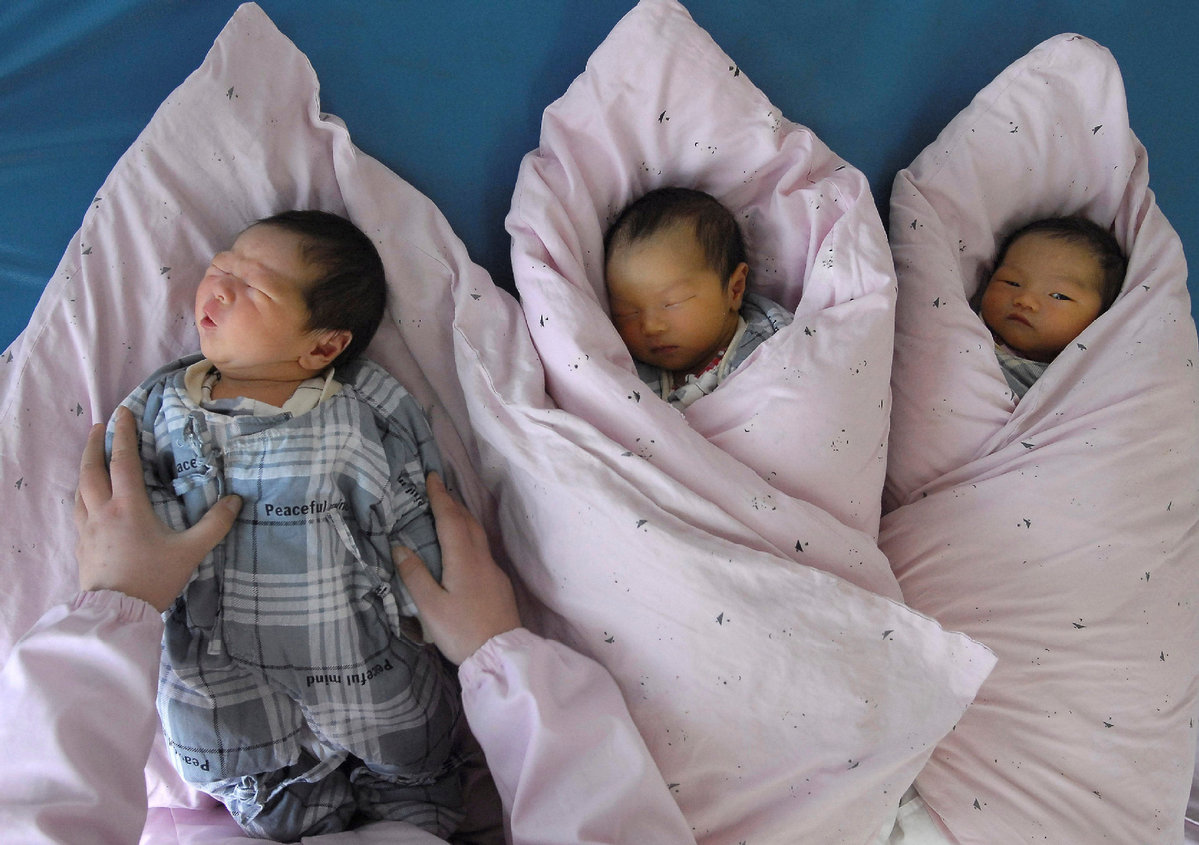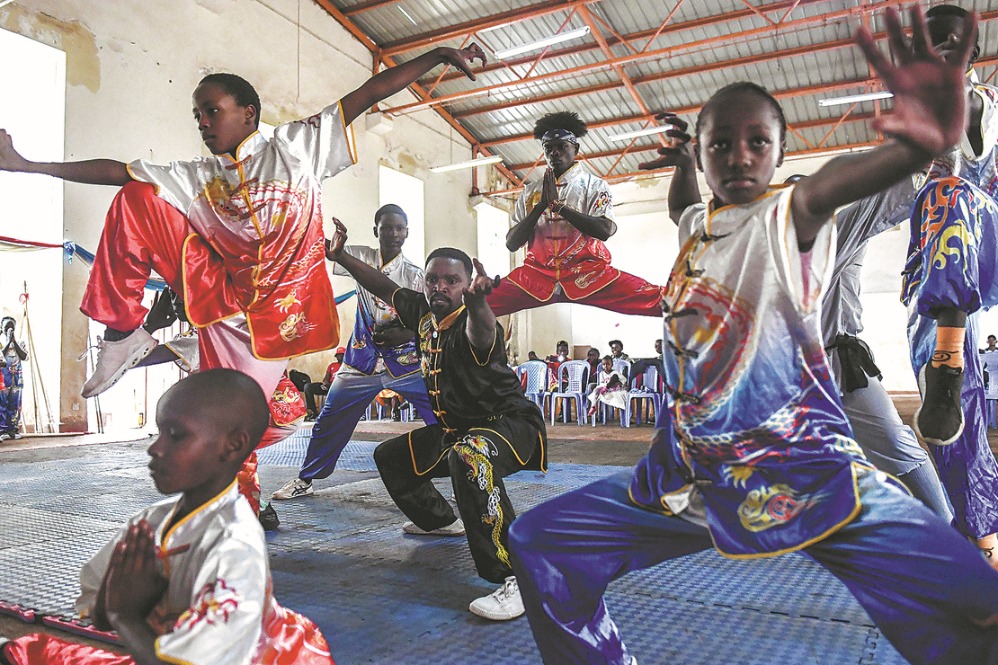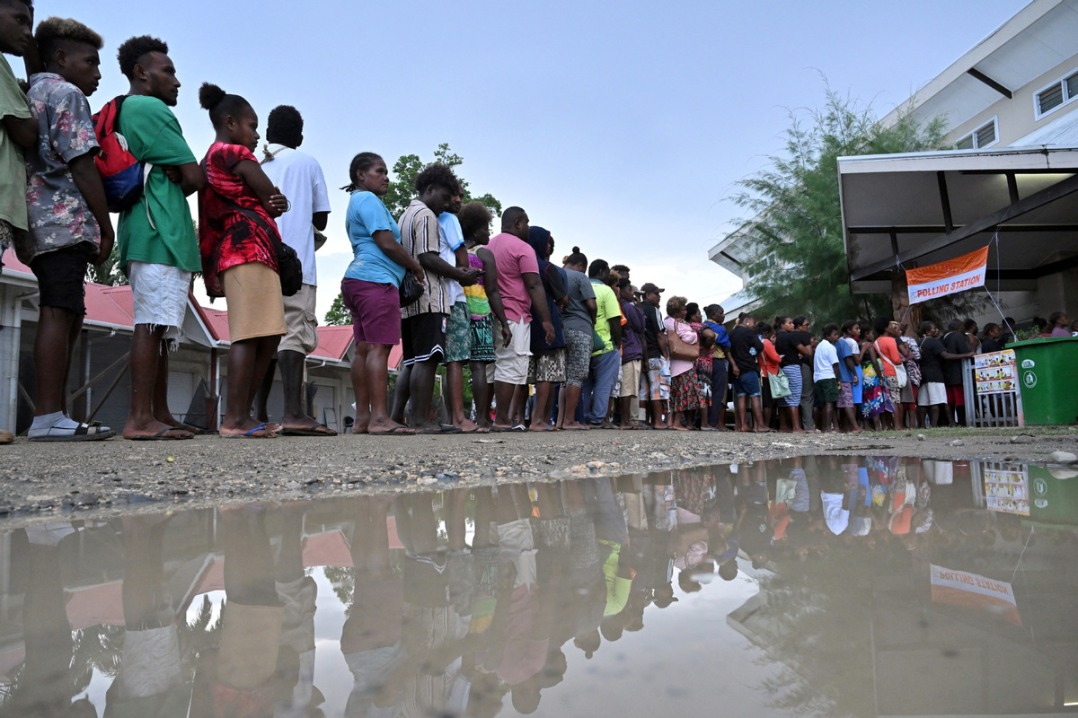Experiences sharing on gender-biased sex selection


Experts agreed in Beijing to work together to escalate girls' status and overturn old idea toward females to change the imbalanced sex ratio around the world.
A two-day workshop, entitled Addressing Gender-biased Sex Selection, concluded on Friday in Beijing, gathering officials and experts to share experience and lessons among countries involved in the Belt and Road Initiative on critical issues related to preference for sons.
Gender-biased sex selection in favor of sons is a manifestation of gender inequality and the unequal value given to girls. It is a symptom of pervasive social, cultural, political and economic injustices against girls and women, according to the United Nations Populations Fund. The sex ratio at birth normally ranges from 103 to 107 boys to 100 girls.
According to UNFPA, China has witnessed the most prolonged and significantly skewed sex ratio at birth since the early 1980s. In 2004, it peaked nationally with 121.18 boys born for every 100 girls. But the figure has been falling in the past years and stood at 112.88 in 2016.
Cai Fei, deputy director general of the Aging Health Department at National Health Commission, said the Chinese government has constantly attached great importance to the issues of women, such as conducting the national "Care for Girls' campaign", whose framework can be shared with other countries.
Babatunde Ahonsi, representative of UNFPA in China, said discrimination against girls in the world is a human rights violation, and China's Belt and Road Initiative provides a new international cooperation platform to advance gender equality and women's health and rights.
Laura Rahm, an expert from Paris-based Center of Population and Development, said joint research and information sharing can be parts of the multilateral collaboration, as the trend of son-preference is deeply rooted globally.
She said the core issues of the gender-biased selection and possible outcomes are similar, and the important similarities may only come to light with cross-country comparison research and experience sharing events.
Elgun Safarov, head of Azerbaijan's State Committee for Family, Women and Children Affairs, said countries should change their mind to conduct more cooperation and to involve international organizations for policy making.
He hoped his country's efforts can be used by others, since the problems Azerbaijan has also exist in the rest part of the world, such as the unfair treatment of women, the stereotype toward female, and insufficient fund for gender equality.
Dhanashri Brahme, a specialist of UNFPA Country Office in India, suggested increasing women's participation in public areas and improving women's status, based on India's experience.
She said the economic independence of females would change the traditional views of sons being more valuable than daughters, thus could influence the high sex ration in India.
"During our interview, some parents said if the girls can provide for them when they are old, they would like to have daughters too," she said.
Dang Luong Quang, a deputy director of Vietnam's Ministry of Health, said his country has worked with UN agencies and other NGOs trying to influence the citizens on the importance of girls and the negative outcome of son-preference.
The event was co-organized by the UNFPA and China Population and Development Research Center, with support from Renmin University of China, Xi'an Jiaotong University and the Netherlands Embassy.



































